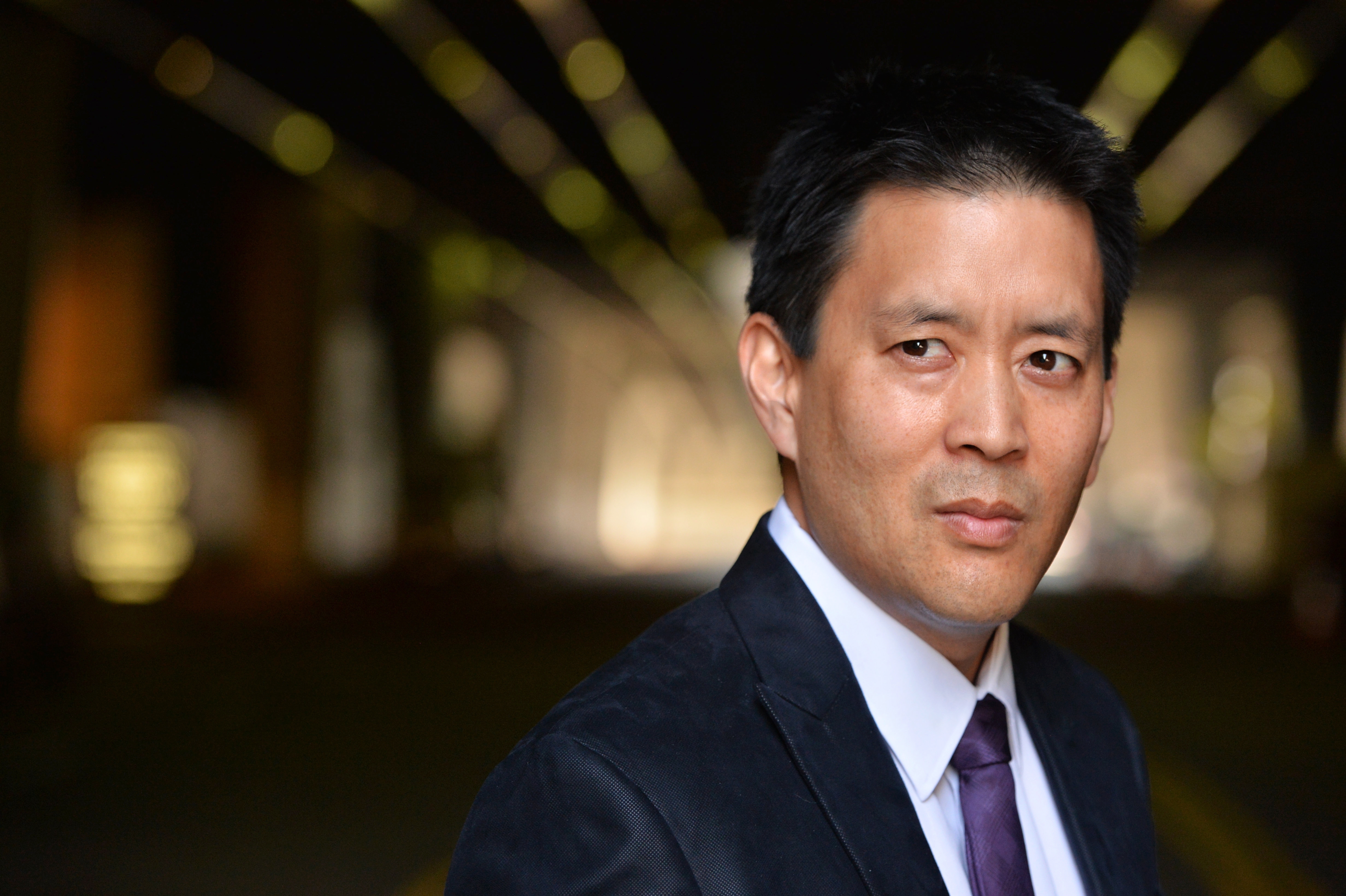
In Their Own Words….Scott Takeda of “Gone Girl”
Greetings readers and THANK YOU for your patience as yet another milestone comes to pass for my film industry adventures as they unfold. In this wonderful world of Social Media, a chance “Follow” on my Twitter account one day early last week brought about an unexpected dividend….another interview with an established, professional actor. And not only has this individual come to a new place in his career in recent time, but his star is continuing to rise. Born in Colorado, USA, yet presenting himself as a self proclaimed “banana”…being “culturally white on the inside yet look yellow on the outside”, he has made his way through the entertainment ranks and has now been seen in one of last year’s most acclaimed films, “The Dallas Buyer’s Club“. Very willing to be transparent and get in depth about his art, and willing to talk while in New Mexico on a shoot, I present to you the rising talent who will be next seen in the major motion picture “Gone Girl“, the wonderfully genuine and whimsically anecdotal, Scott Takeda.
One Film Fan: The story so far, how were you first drawn to the acting profession? When did it become evident that acting was going to be your career choice?
Scott Takeda: Wow! That’s the million dollar question. I started out in television news, I was one of those TV news reporters, but I’ve always looked young. You know when your young, and you still sound like it! I mean, when you’re in your 20’s and they’re still mistaking you for being in High School, but you’re well past college, it’s a little humbling of an experience. And BECAUSE I looked so young, I wasn’t going to advance very much because no one wants to get their news from someone who looks like they’re a junior in High School, you kind of lose that credibility. So I kinda went behind the scenes, shot, produced, and edited and kind of climbed the ladder that way. The way you advance in television is you move from market to market to market, going from a smaller market to a slightly larger one to a medium one, to a medium large market, to large market, and that’s how you progress. And you don’t get raises like you would in a traditional company, you basically change jobs to get a raise, since you’re working in a larger market with a larger audience base and larger advertising base. So, I kind of got tired of “the biz”, I got tired of MOVING…and so I had to get out of the news business. And, you know, being behind the camera and being out of this business, I missed being in front of the camera, so that was my first longing, if you will, the first draw to maybe I also enjoy telling stories in front of the camera. I’m a director as well, as I love telling stories with pictures behind the camera, but I had a draw to get back in front. So, I took some acting classes, got an agent, did a few local commercials, and it kind of went from there.
O.F.F: How did you further learn the art (ie: mentors, influences, schooling)?
S.T.: I’ve always been kind of professionally in the business of telling stories, so let’s start with that. At the very heart of things, I am a storyteller. So I love telling stories as a director, mixing pictures and sound together to tell the stories that way. Then I have also gotten back to into telling stories in front of the camera, with my medium being emotions basically. And that is what acting is, you have a pallet full of emotions, and you help a writer and a director tell a story by conveying emotions in people and that kind of stuff.
As far as mentors go, I don’t know if I have one, man! I’m mentor-less! Let me put it this way, I think in Television and Film there are two basic types of actors, and I’ve never read this anywhere, so if someone else has said this, then I guess great minds think alike. There are actors that I call “Thespians”. And I think the Thespians have a stage background. When they’re not in front of the camera, you’ll find them doing a one-man show, you’ll find them doing Broadway, something stage-like. They’re always acting. And they’re awesome, just awesome! Those are the Kevin Klines, the Meryl Streeps, the list goes on and on. And then there are what I call the filmmakers. When they’re not in front of the camera, they’re behind the camera. So those would be like Ben Affleck. That would be Reese Witherspoon, who’s producing stuff, her OWN stuff. Tom Hanks. George Clooney. They wear multiple hats. So I would say that within THAT genre, without ever having met my mentor, I still do appreciate what the storytellers, what the filmmakers, do. I love what George Clooney does. I’ve appreciated the fact that he’s been rewarded both as a producer, as an actor, and has been nominated as a director as far as an Academy Award. So, I guess those are the types of mentors I look for.
As far as schooling goes, I have a BS in Journalism, so quite honestly I learned a lot about acting by directing, I learned a lot about directing by acting. I still take a weekly acting workshop, a television/film workshop, I take improve classes, I’ve studied with UCB out of Los Angeles. So…I’m kind of a workshop addict! I’ve taken a weekly workshop for, I think, 14 years now, and I’ve added up the time and I go, “you know what, I could have had multiple Doctorates by now, if I spent that time for a college degree! It’s one of these things where it’s like, you see some of these people with all of these initials on the back side them like “M.D., L.D.S.”, all these amazing degrees they’ve had and I have…a Bachelor of Science! In a field I don’t use anymore. There you go!
O.F.F.: When preparing for a role, do you always have the same routines/methods to get into a character or does that vary depending ON the role? Additionally, how much research do you tend to do FOR a character?
S.T.: It’s a big, fat “It all depends”. To give you a quick example from about 45 minutes ago….earlier this week I read for a role on an ABC series…I flew out, read for it. I am now here in New Mexico to film a nice, large co-starring role on a new CW Network series. So in my head, I am trying to get into this character, ok, that I will be filming tomorrow. Well, my agent calls me up and says “Um, the role you just read on Monday…they like you, but they’d like you to make some adjustments, can you go and tape something really quickly.” Obviously I’m on location, so I can’t go fly in and meet with the director again. So, I am having to immediately shift again and go “Ok, where was I at on Monday!” as I am driving over to the studio to tape it. So I am in a situation where I am having to make a very large character shift in about ½ hour, during the drive time. So, I wasn’t able to do a lot of research, I’m just kind of basing it off the research I already did, if that makes any sense? I think some of the best research you can do is to just bring yourself to a role…how would I respond to a situation like, I don’t know, pick a scenario…it’s the end of the world and I have to tell my children, “you’re going to be ok”…so how would I actually handle that? I mean, I can’t research the end of the world, there’s no other way. So, it’s one of those things where it all depends. I know for “The Dallas Buyer’s Club”…WOW…you know I’m Japanese, and I’m playing Japanese…I’m not JAPANESE Japanese, you know, so I meet with people who ARE Japanese Japanese, born in Japan, and I learn how to bow…and I learn the body structure, I learn the accents, I put a lot of hours in just a nice scene, but you know just one scene with Matthew McConaughey. It’s one of those things, I put in the amount of research that I can, if I need to. Sometimes I have less than 24 hours to turn a role…so like, what am I going to do…it’s like you’re reading for an ER doctor who tells someone their sister just died…ok, I’m not a doctor…ahhhhhhh…but I can imagine what I would do if I told someone their sister just died. What would I do in that situation? And that’s one of the interesting things about television film is the audience truly IS the camera…and that audience, they’re on a nice little telephoto lens…they’re RIGHT in your face. So one of the things I learned from a casting director that I have a great deal of respect for is “if you think it, we see it”, the camera picks up everything. So if I think you’re lying to me, if I actually THINK that while I’m saying my lines, then the camera’s going to read “I think you’re lying”. At a certain point, the art of television film acting can be quite subtle. It doesn’t have to be “I’m going to act like I think you’re LY-ING! Let me put my “I think you’re lying!” face on. And I think more than anything else it’s more about just being in the absolute, purest sense, the moment, ignoring the 30 crew people standing around you, with all the lights and the boom mic in your face, and just honestly being in that moment of saying “We did everything that we could, but she lost a lot of blood, I’m very sorry, we did everything we could.” And to really BE in that moment as opposed to “What is my moment before? What is my motivation here?” Some roles require that, some roles don’t. That’s the juggling act is to determine what is most important for the story, am I truly carrying the theme, am I advancing the story, or am I the obstacle for the main character?
O.F.F.: Do you prefer more physically driven characters or emotionally driven characters and why?
S.T.: Wow! Um…I don’t know! Yeah…I’ve had some roles that were quite physical…I’ve had to rip off my clothes and strip in the middle of a pawn shop…THAT was pretty physical! Flashing the Casting Director! That was fun! It’s also kind of fun to play with emotions, too. I’m not sure if I HAVE a preference.
O.F.F.: Has there been a certain character (or characters) to date you’ve enjoyed playing in particular and why?
S.T.: (Laughs) That’s a great question! I can tell you that the character I played in “Lemonade Mouth”, the Disney Channel TV Movie has gotten me more recognition than just about any other roles that I’ve done. That recognition, however, has come from 8-12 year-old preteen girls. I’ve been recognized in Romania and in the middle of rural North Dakota because I played Stella’s Dad in “Lemonade Mouth”, which still airs on The Disney Channel. Yeah, a slightly uncomfortable, awkward fandom of a whole bunch of preteen girls, which I am appreciative of, but it’s like you don’t want to…you need to keep your distance. It’s like “Thank you very much, let me give you an autographed photo, and let’s leave it at that.” It’d be one thing if I was, like, 17…I’ve got the Justine Bieber Syndrome type of thing, but no, I’m an adult here. The film was a fun thing to do because it was, I hate to use the word “wholesome” because it can be kind of a stereotypical word that can pigeon-hole you, but it really WAS wholesome programming and it’s nice to know that anyone can see the film. So that was kinda nice. “Dallas Buyer’s Club” is still getting a lot of buzz right now, but I have some nephews and nieces, I mean, it’s a Rated R film, so you’re not just going to take them into the theater and have them see some of the more adult moments happening. It’s too bad, as it’s a really important film, and hopefully when they’re in their teenage years you can go “Ok…now you can watch “Dallas Buyer’s Club”, you can watch your uncle. I recently shot an episode of “Nashville”, and I learned so much on the set from the cast members, the director, really a tight-knit group of people, and being actually shot in Nashville, so it was cool to be AROUND Nashville while you’re shooting “Nashville”. So, those are the three things that kind of pop into my head as far as being memorable.
O.F.F.: What have the experiences been like in TV roles (“Busted”, “Lemonade Mouth”, “The Secret Lives of Wives”) vs. film roles (“Dark Around The Stars”, “Assassin’s Code”)? Similar or completely different?
S.T.: Oh yeah! TV is SO MUCH faster! My gosh! Holy cow! Wow! But, it was so amazing working for David Fincher (his director in the upcoming “Gone Girl”), he is such a genius. He has the reputation for doing a lot of takes, because he wants to see what can happen on the second take as well as the 8th take, as well as the 12th take. You couldn’t DO 8 takes in a TV show! It’s like “WHAT?! WHAT?! Move ON! Move ON, my God, THREE takes is getting dumber! Maybe 2!” When you think about it, a feature film is roughly 90-120 minutes, and a television show, after you take out the commercials, is roughly 42-45 minutes. A TV show, they shoot it in 10 days, while a film…they can take 100 days. You’re cranking (with TV). But, you can get some really good results in 10 days, it’s really amazing what they’re able to do. “Dallas Buyer’s Club” was one of the fastest shoots I’ve ever been on. That was shot like an independent film, I mean, they were just cruising. There were no stand-ins…the actors WERE the stand-ins. Matthew and I were standing there through the whole process.
O.F.F.: Tell us a little bit about “Dallas Buyer’s Club” and how it was to work alongside Matthew McConaughey. 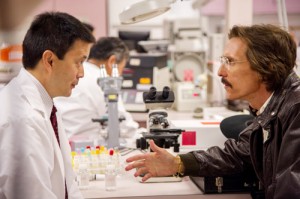
S.T.: Oh my gosh, that was a life-changing thing! Basically my career changed overnight once people began understanding what that film was. Here’s an interesting side, and it’s really weird, because when you book a project, and you work it, it goes on your resume, and you tell everyone “I did project XYZ” and they go “XYZ, ok” and it like it means nothing, they have nothing to put it into context. So, the name “Dallas Buyer’s Club”, what the HECK is that? You tell friends “I just got cast in “Dallas Buyer’s Club” and they go “WHAT??” And I’m like this is a feature film that stars Matthew McConaughey and they go “Oh! “Magic Mike” Yeah! “Dazed & Confused” Oh it’s going to be so awesome! Is it a romcom?” and I’m like “No, it’s a drama”. “Oh, Ok”. It’s like NOTHING. Then came the Fall time last year when it premiered, it started getting buzz, it started coming out in the theater, people started hearing about it, and then it’s “BOOM!” it’s like, “Oh my God, you’re in “Dallas Buyer’s Club”!. Suddenly that has MEANING. (in his best movie trailer voice) “You’re in “Dallas Buyer’s Club”!, you know?? (Laughs) “Academy Nominated “Dallas Buyer’s Club”. “Academy Award Winner” Matthew McConaughey”. Not “Magic Mike”, not romcom dude, but “Matthew McConaughey”. So you know, you go from “Hey, I booked a film it was a really great experience” to “OH MY GOD! You’re in “Dallas Buyer’s Club”! I have friends that will call me up and go “I was just watching this film and YOU’RE on it!” (Laughs) But that project almost didn’t come around for me. I booked the project, and then 3 weeks later I went on vacation. I did a lot of research in that 3 weeks. And not just ANY vacation….a vacation on the opposite side of the planet…Vietnam! My lovely bride and I fly out to Vietnam, I’m on the ground 3-4 days, then I abandoned my lovely bride, get on a plane, fly back to the United States, ON Thanksgiving weekend, I shoot with Matthew, get back on a plane and fly back to Southeast Asia at which point my lovely bride is in Cambodia, and we continue on with our vacation for the next two weeks. So I think roughly 22,000 miles in 10 days. The fact that I have ANY memories from that is amazing.
O.F.F.: So, onto your current project, “Gone Girl”, coming out October 3rd nationwide……How did this opportunity come about and tell us about getting the role of a TV Producer.
S.T.: Well, I was shooting a CW Network series in Louisiana, and was contacted by my agent about “Gone Girl”. They were looking for people to play a network TV Producer, and they were looking for folks that had real television news experience, and it’s like “Wow…that’s me!” I’m thinking how much research do I do…that’s “0”. I know TV news! So I get off set and go to a place where I can record, as though the auditions were in Los Angeles, but they allowed me to tape because I was on location, and gave a read that was just me 10 years before in television news.
The thing that is fascinating, and it’s really unconscious, is that we all have a certain body type and look and feel. You can see a guy walking down the street, and he’d kind of burly, got short-cropped hair, and very, very instinctively you understand this guy is either a solider or a police officer, right? Or you see a really well dressed woman, in her 30’s, pretty smile on her face, very professional, you know she’s a PR person. Or a guy that’s a little stressed out, dressed well, but not THAT well, and told they’re a little frumpy…THAT was a network TV news Producer right there! A little distracted, and a “Type A” personality, very focused, and it’s like you don’t even realize it when you walk around in life, we all carry what I call body emotional uniforms.
And so for ME to kind of just slip back INTO that feel again was something I’ve worn for years and while I don’t DO that anymore, it was pretty easy to do that. And that’s one thing about David Fincher, putting all the credit back on him, with “Gone Girl”, and really all of his films, has gone for authenticity. So when you take a look at this film, you see a lot of unique faces, even the folks in the background, a LOT of attention was paid to find just the right people, so they look like they’re FROM that part of the country, or that neighborhood, or whatever it is, because that helps to tell the story. So I feel very, very fortunate in the fact that I would have a chance to read for that and that being a TV news Producer is something I’ve done before. And that was one of things I was looking for. But if they’d wanted a doctor, I’ll give you my best shot, I’ve played it before on film and television, but if you want a REAL doctor you’re going to cast a real doctor. And that’s what I think he did with almost ALL the roles, he found people uniquely special for that role, so I think I was reading somewhere where they said (the film) was exquisitely cast, so I felt really good about that, like “Yea!! I’m part of an exquisite cast!”
O.F.F.: How was it working alongside actors like Ben Affleck and others on the film? 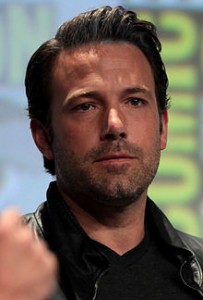
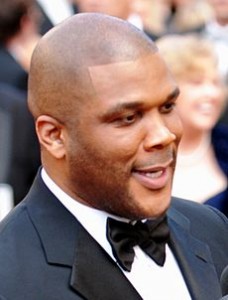
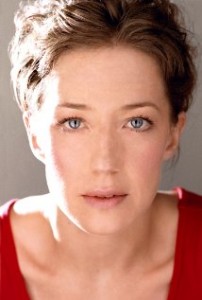
S.T.: That was an amazing experience! Ben Affleck is just a consummate pro. I mean, when he was not on camera he was talking to Fincher, they’re going over ideas. The day we were shooting he had a fairly long scene, I was not IN that particular scene, but he was going over his script, going over his notes, just the consummate professional. I have so much respect for him. Tyler Perry…my gosh, really showed me a different side of him than I think I’m used to seeing, so it was cool to see that. Had a chance to work with Carrie Coon, who plays Margo in the film, and wow…just a very thoughtful person, and some of the discussions we had about the story were really nice.
O.F.F.: As an actor, how was working with David Fincher? 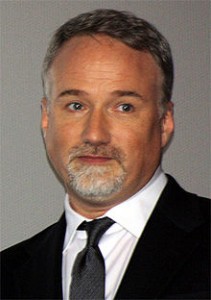
S.T.: Some of the things I’ve told people before…what I love about Fincher is that I’ve heard that he’s very specific, and that is certainly absolute truth. What I was not expecting, and what I appreciate, is how collaborative he is. So, when we start a new scene, and they don’t even bring the cameras in or the lights, all the actors are sitting around…and I didn’t know this…I’m thrilled to be on the film…I am not Ben Affleck at this point in my career. So I know sometimes on projects it’s my job just to keep my head low and just follow direction. What I discovered was Fincher’s there, and he’s looking at the room, and he’s looking at all of us, and he’s like “what if I came around the corner here and said the line” and then they would go “yeah, yeah, yeah, and I could do this” and Fincher would just list it and “ok, ok, try that” and then he watches them do that and it’s like “Ok, fine”. And then Sela Ward would go “Well, I could walk in like this…and sashay over here” and it’s like at that point everyone is chiming in, Carrie Coon’s going “well what if I tried this” and he’s listening to all this and you can see the wheels churning in his head. And after a while I go, “Well if you want I can pick up the remote control and then hit that and we could be watching television at that point and I could be showing her my cell phone” and he’s listened to ALL this. Very collaborative. He’s not saying “yes” to everything. He’ll listen to that and be like “No, what if we try this”. And then after he figures it out, really dials it in, then he’ll start figuring out his shot angles, he’ll bring in the cinematographer, and at THAT point, it’s ALL dialed in. Then it’s like, he’s got his vision, we’ve given him the various different options, and now it’s our job to bring that to life. So it was really cool to see how he processes things. Also being director (myself), I would try to get as close to him as possible without being a pain, just to hear what some of his obsessions are, to see how the shot’s being set up, to see why he decides to do things certain ways, it was really fascinating.
O.F.F.: What other projects, film/TV-wise are you involved in? And also from a director’s standpoint, what opportunities are there currently?
S.T.: The only thing I am cleared to say is that I am currently shooting a large, co-starring role on a new CW Network series. I hope to be booking this ABC series that I just got a callback on. And I was just recently signed on for a supporting role in an independent feature film titled “Final Descent”, shooting this winter.
O.F.F.: Can you briefly tell us about that film?
S.T.: Wow…that’s a great question. It’s a fictional story about a young skier on the US Ski Team who’s facing the biggest race of his life, but at the same time has to face the loss of his Dad, the illness of his mother, and having to make some decisions, being as young as he is, that are adult. Really about becoming an adult for lack of a better term. It stars Connor Jessup, of TNT’s “Falling Skies” and Derek Theler from ABC Family’s show “Baby Daddy”. I’m very, very thrilled! I have to wake up every morning and pinch myself to make sure I’m not dreaming!
O.F.F.: And how about your own directing opportunities?
S.T.: When I am not in front of the camera, you’ll find me behind the camera. I do a lot of client films. We’re really happy to have a lot of Fortune 500 companies that seek me out to do their internal client films. So that keeps me flying all across the country. And on the narrative film side, we’ve produced a bunch of terrific Shorts called “If Not Now” for Denver’s “48 Hour Film Project”. We just took home best actor, best cinematography, and First Runner Up, so we didn’t win it. And my filmmaking partner and I are looking to possibly do our first feature. The planning has begun, but who knows when we’d start shooting. We’ll see.
O.F.F.: Do you feel a true sense of accomplishment when completing a film/TV role, or does it just feel like your job at times and that’s it? Do you consider how a particular film (or films/shows) might impact (or DO impact) those that watch it/them? Does that reaction (or lack of reaction), whether critics or fans, affect you in one form or another?
S.T.: (Laughs) Wow! Great question! From an artistic perspective, it’s always nice to get a chance to practice your craft…and get paid for it! So I think just about anytime I am on set, I’m incredibly grateful, because the level of rejection in this business is as advertised…you get turned down a lot more than you get accepted. I’m often reminded that some of the very best Hall of Fame baseball players FAIL 70% of the time…they hit .300. So they’re FAILING 70%. So anytime you have a chance to practice your craft, it’s a humbling and grateful experience. There ARE projects that you walk off of, and you do have a special feeling about. There are several projects that I’ve done where it’s just fun storytelling. It’s amazing how many people have approached me after “Nashville” and they go “I don’t want to miss an episode! It’s my guilty pleasure”. It’s a soap opera, it’s a really fun show to watch. It’s absolute 100% entertainment. Are we going to learn anything out of “Nashville”…..who knows, probably not. Are we going to enjoy the heck out of ourselves watching it? Most likely. So that’s a situation where working “Nashville” is just fun. I actually met somebody on my current CW project who was not only in “Dallas Buyers Club” but also in “12 Years A Slave”…oh my gosh. Those are two projects where you go…”wow…we just did a project here (and SHE did TWO) that are going to affect some lives”. They were not just entertaining you, but they were also enlightening you. So you DO have those projects where you do go “I think we will change some lives here”. Not necessarily “we’re going to change the world here”, but storytelling is a very sacred art form, that we’ve been doing since cavemen were drawing pictures in a cave. It’s part of our human experience to share stories. So when we can be sharing specific stories that HAVE the potential of enlightening people or opening minds, changing minds, or creating awareness of things that NEED awareness, like slavery…the sheer brutality of it…and knowing it on an intellectual level and then knowing it on an emotional level, like watching “12 Years A Slave”, is life-altering. And without using a really crass subject, I think when the videotape of Ray Rice came out, what he did was awful and we condemn that, it was terrible. But for some people, it actually TOOK the visual for them to go “Oh my gosh!” So when you have a film like “12 Years A Slave” or “Dallas Buyer’s Club”, and you can have that emotional impact on people, it’s nice to know you might end up opening some minds.
O.F.F.: How has being a celebrity really affected your life overall? Beyond “fame and fortune” aspect of being in film and TV, how do keep yourself grounded with the pressures of having a job that happens to put you in the public eye, and world’s eye, so prominently?
S.T.: Well…first of all, let’s start with I have no fortune, I have no fame. That may come, at this point, it’s not here. I’m making a comfortable living, but am I in that stratosphere-type of salary…no. Maybe one day, but no. Now, that being said, I’ve only been seriously doing this, larger type projects, for about 5 years. I think the first one I did was “Easy Money”, The CW series, in 2009. You see these people who are mobbed by the press….like…wow….that doesn’t look like fun. I apologize if I am attributing this incorrectly, but I think it was Ben Affleck who said “The only thing that makes fame worthwhile is the fortune that follows, because the fortune kind of helps you avoid the fame”. I know some people in our world think it would great to be famous and I’m like, I kind of enjoy being able to take a bike ride down the street and nobody recognizes me, and I actually enjoy doing my own grocery shopping, it’s nice to be able to just walk around. So, I’ve not had to deal with that….except for, occasionally, the aforementioned 8-12 year old preteen girls, you know?? (Laughs). In the oddest situation, I’ll be recognized, and I’m like “Wow…yeah, I am Stella’s Dad”.
O.F.F.: What advice would you give to someone looking to get into the film industry/acting in general?
S.T.: Wow! Three answers popped into my head, but trying to decide which one to go with. I would say, from the practical side, if you wanted to get in, study…go to college for it, find a good, qualified, ethical coach who knows what they’re doing. And study! I would say that is the way to go. Certainly get an agent. And understand that, again, the rejection stories are true. But it’s a numbers game. The more opportunities you have, the more chances you’ll have to book. But most of the time you will be told “No”. And if you can live with that, that would be great.
O.F.F.: Ok, final question…What is YOUR favorite film of all time? Why?
S.T.: “When Harry Met Sally”! I LOVE that film! I don’t know what it is about it…I think it’s the tone of the film, the execution of the performances. Strangely enough I think it’s a ‘90’s film. When it’s on TV, I don’t care what I’m doing, if I’m flipping through and it’s on, I just stop….and I watch….you know? Even though it’s ‘90’s, it doesn’t look dated to me, I think somewhere in my mind I froze in the ‘90’s somewhere…so it’s like “Ah, upbeat, how nice”. I can’t say that there’s any great depth to it…it’s just a sweet film and I love it! Great dialogue, great performances, good direction, and just wonderful tone all the way through it. And it’s a chick flick and I don’t know why that’s the one I chose but it resonates with me.
An amazing time on this conversation and again, Mr. Takeda’s humbleness and “real-ness” absolutely captured me. And I think this is now another prime example of what I personally have desired to find in speaking with any of the stars that I happen to get the chance to….that they are normal people with amazing talent that have had the blessing of being able to share that with the world, but do it in a way that doesn’t exalt themselves, but exalts the ART, the CRAFT, of acting and what it can bring to us as the viewer and them as the performer. And ALSO what struck me so well in speaking with this gifted actor….he put a the face on the industry and the art that I hoped for….a human one. Please follow Mr. Takeda on Twitter, Facebook, his Website, and also via Takeda Entertainment. AND…GO SEE “Gone Girl” October 3rd in a theater near you!!
As always, this is all for YOUR consideration and comment. Until next time, SPREAD THE WORD about this interview and let’s help Mr. Takeda get even MORE known, film fans!!
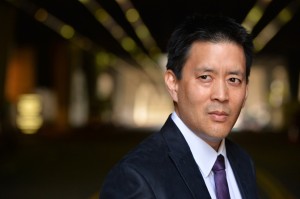
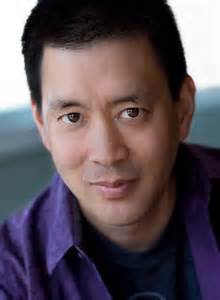
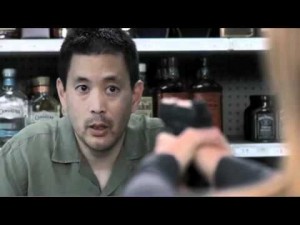
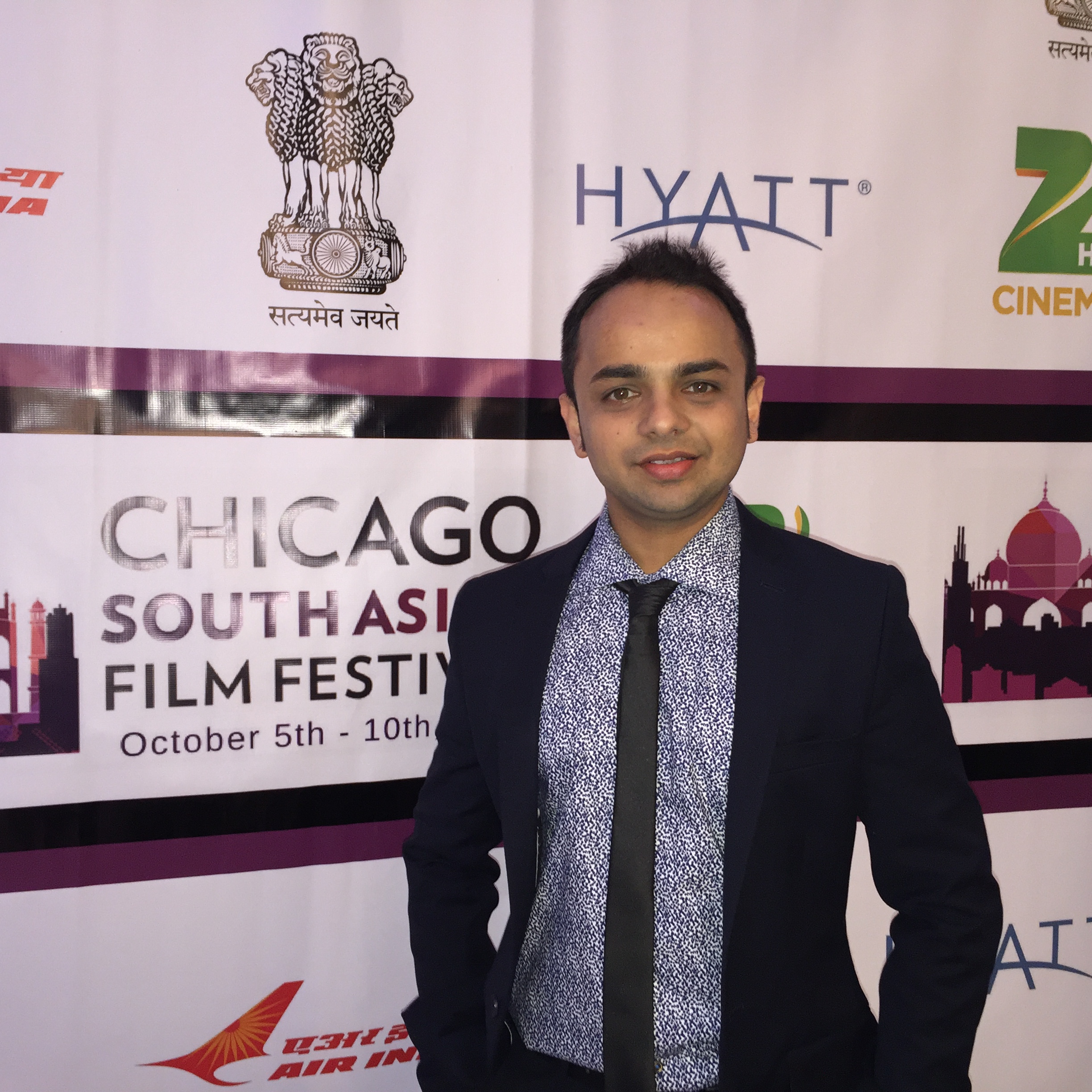
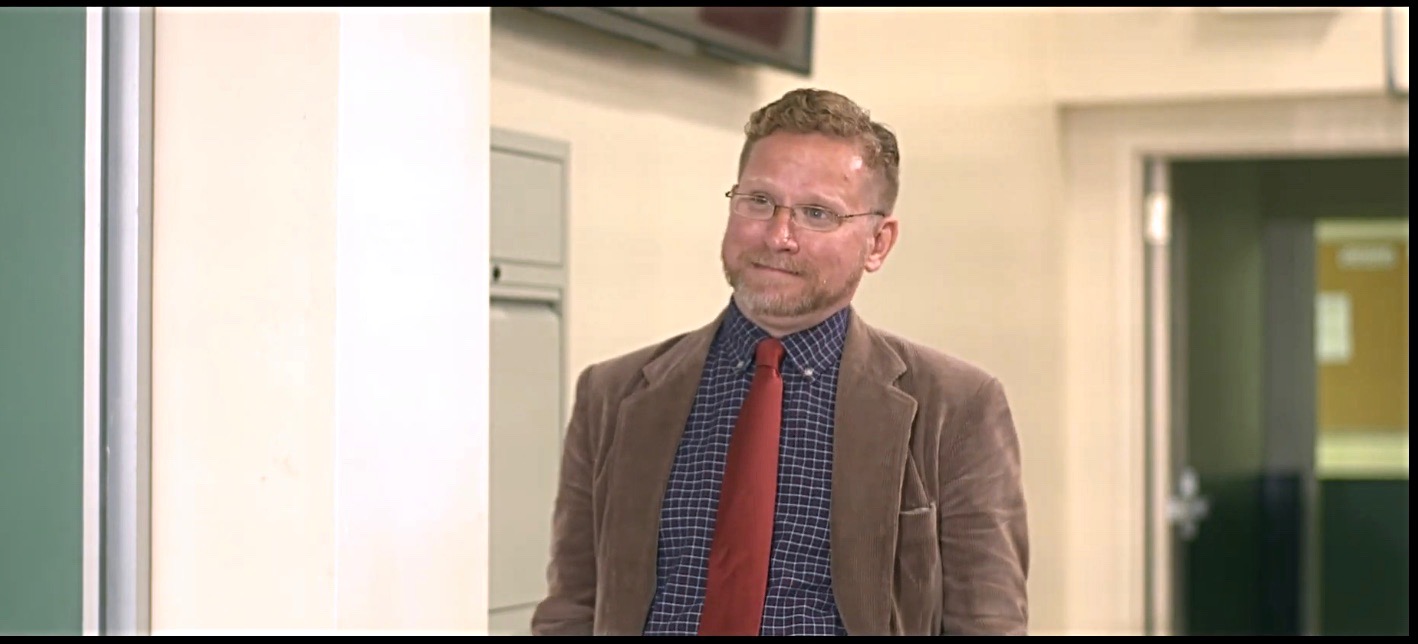
Permalink